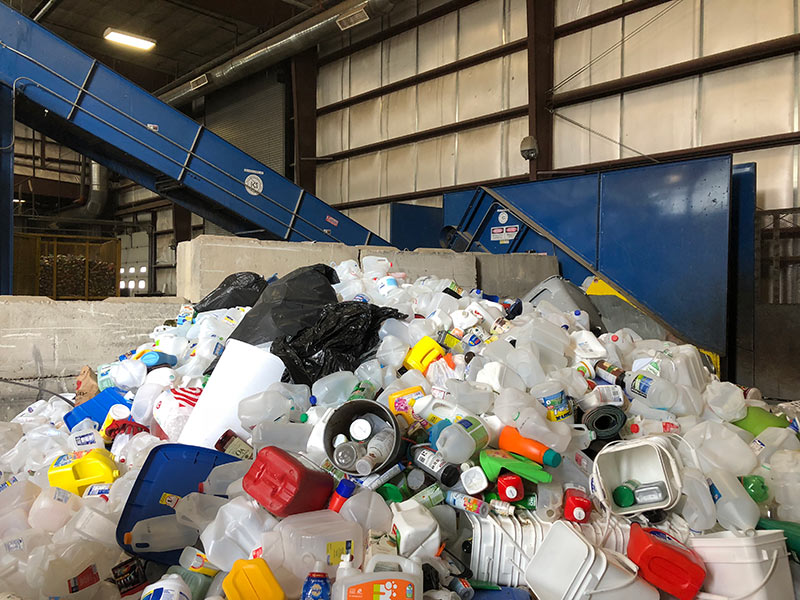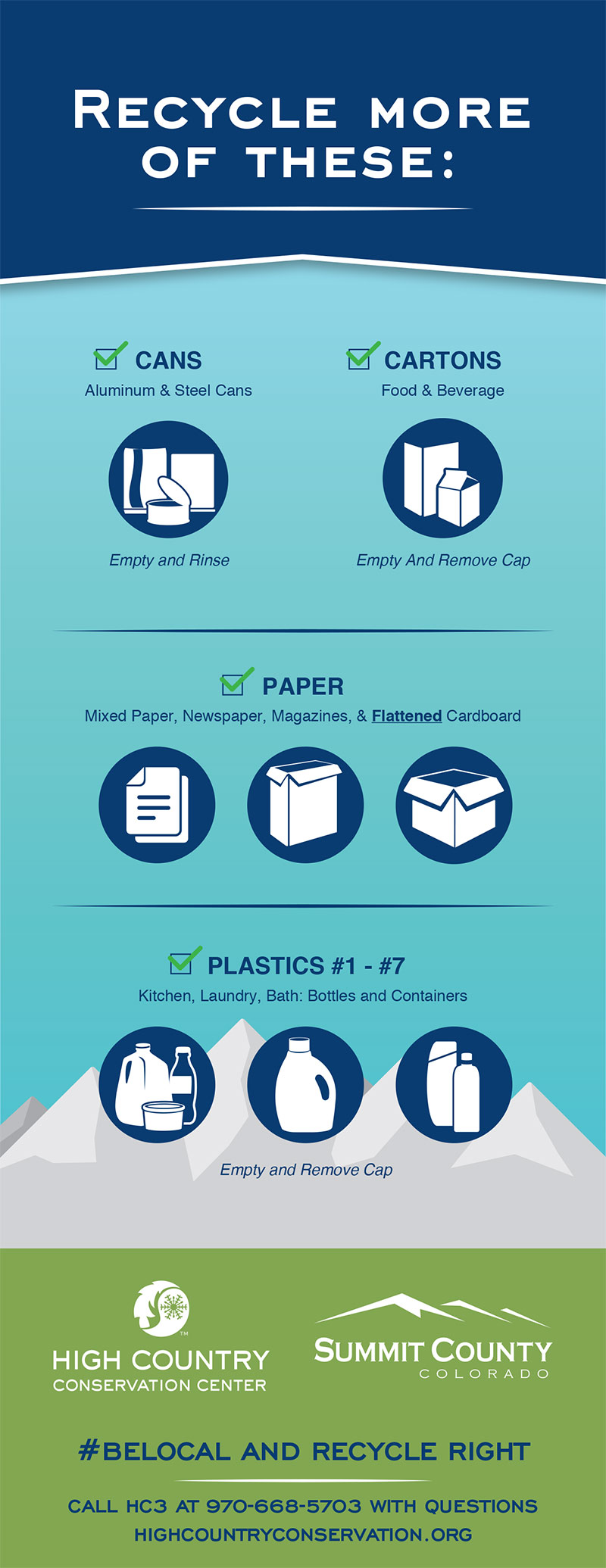
Dear Eartha, I heard China is no longer accepting a lot of America’s recycling, so it is piling up and being sent to landfills instead. What can we do about this?
Thanks for your question, Anne. We all want our recyclables to be repurposed and reused. If you’ve ever approached a recycling bin with an item you’re not quite sure about and tossed it in thinking that must be better than adding it to the landfill, you’re not alone! If the item wasn’t recyclable, the facility would sort it out … right?
WISH-CYCLING
Unfortunately, that’s not the case. The multi-billion dollar recycling industry calls this “wish-cycling,” and while certainly well-intentioned, it does more harm than good. The contamination from items we hope are recyclable but aren’t poses hazards to the workers and machines sorting our waste, and incorrectly sorted items can send an entire batch of mostly acceptable materials to the landfill.
“Wish-cycling” is one of the biggest reasons why China stopped accepting some types of recyclable materials this year, including many plastics, and placed stricter requirements on others.
China now requires materials sent for recycling to contain 0.5 percent contamination or less, which combined with the plastic bans, is having a tsunami-like ripple effect in the U.S. and other countries that have been sending huge portions of their recycling to China for decades.
So where’s all that material going now? Without a buyer for the recyclable materials, processors have already had to send tons of recycling to landfills, burn it or send it to other countries that lack the capacity and infrastructure to properly manage it. Now, many countries also are following China’s lead and enacting similar rules. Though these changes are causing recycling headaches now, in the long run, they should be a wake-up call for all of us to stop “wish-cycling” and clean up our act.
OOPS
This is why recycling education has become more important in 2018 than ever. In some communities, waste managers have started inspecting people’s recycling bins, talking with residents if they’re home and providing feedback in the form of “Oops!” tags if they’re not.
In Summit County, we know the rules can be confusing and have changed in recent years (for example, glass must now be separated from single-stream bins), so High Country Conservation Center will be going around with “Oops!” tags soon, too! If you see HC3 staff poking through your bins, take the opportunity to chat with them about how to include cleaner, accepted materials and help our local waste managers produce higher quality recycling.
WHAT YOU CAN DO
Breaking the “wish-cycle” is one of the easiest ways we can prevent our recycling from going to a landfill. To make sure as much of our paper, plastics, glass, and metals are recycled as possible, here are some tips:
Learn what is accepted by your local facility (here it’s the Summit County Resource Allocation Park or SCRAP) or waste hauler. HC3 has a handy new online tool called Rocky the Recycling Robot to help answer all your “What about bottle caps? Pizza boxes? Fill-in-the-blank?” questions.
If all else fails and you’re still unsure if the item is recyclable, toss it in the trash. The Steward family’s motto is, “When in doubt, throw it out!”
Remember to empty containers and rinse off food residue. This prevents contamination that endangers workers, reduces the value of recycled goods and threatens the financial sustainability of recycling.
At your workplace, take advantage of HC3’s partnership with Recycle Across America to promote standardized labeling for your waste bins. These colorful labels with pictures help everyone learn and recognize what goes where.
Become a zero-waste warrior and volunteer to help people correctly sort their recycling at one of HC3’s zero-waste events. The next opportunity is at the Keystone Bluegrass and Beer Festival on Aug. 4 and 5.
Remember that recycling, though it gets all the hype, is the last of the three Rs of waste reduction. We can make a much greater impact by first reducing our waste and reusing it whenever possible.


